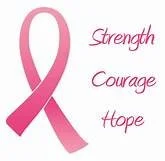Over twenty-three years ago, I was involved in working with the Women's Healthy Eating & Living (WHEL) Study coordinated by the University of California, San Diego Cancer Center. The WHEL study, a multi-site controlled clinical trial, investigated the effect of diet on the recurrence of breast cancer. Early on at UCSD, night after night, I would sit in my cubicle and talk with women who had been diagnosed with breast cancer strategizing as to how best adhere to particular dietary goals. Years later, I worked directly with these women at UCSF and Stanford completing their periodic assessments and teaching monthly cooking classes. Through this work, I learned about their lives, their families, and eating habits. It was these women, WHEL study participants, who guided me in developing my passion for helping those with cancer. I will always be grateful for the WHEL study - my co-workers and the participants, who led me to fight for the cause. And I'm honored to have continued working with some of these women to this day.
A few WHEL takeways:
* The combination of consuming five or more daily servings of vegetables-fruits and walking 30 minutes 6 days weekly was associated with a 50% reduction in risk.
* When compared with the control group [who followed the '5-a-Day' dietary guidelines], the diet for the intervention group [who aimed to consume daily 5 vegetable servings plus 16 fl oz of vegetable juice; 3 fruit servings; 30 gm dietary fiber, and 15-20% of energy intake from fat] did not reduce additional breast cancer events or mortality during a 7.3-year follow-up period.
* Tamoxifen and vegetable intake: While the protective effect of vegetables on the risk of breast cancer recurrence remains to be determined, this secondary analysis in over 3,000 breast cancer survivors suggests that baseline vegetable intake may be associated with a reduction in the risk of breast cancer recurrent or new events particularly for those using tamoxifen.
* Post-diagnostic CRP and breast cancer survivorship - Elevated CRP levels (≥ 10 mg/L), suggestive of acute inflammation, may be an important independent biomarker for long-term survival in breast cancer survivors. Many of you know how I like to regularly assess inflammatory markers, this is one reason why.
* Compared with the least active women, those who were most active at baseline had a statistically significant 53% lower mortality risk. Greater levels of physical activity post-treatment was associated with improved survival.
* The WHEL study was the third epidemiologic study to report no adverse effects of soy foods on breast cancer prognosis. Women who consumed more isoflavones, phytochemicals in soy foods, observed a nonsignificant 54% reduction in risk of death.
* What about hot flashes? Women who consumed a diet high in fiber, were premenopausal, and had high social support reported a decreased severity of hot flashes and night sweats one year after study enrollment.
Bottom Line
Eat 8 to 10 colorful fruit and vegetable servings daily
Two to three pieces of fruit
One cup or more of vegetables with lunch and dinner
8 fl oz vegetable juice
Consume 30 to 45 grams of fiber daily
You will likely meet your fiber goal if you eat 8 to 10 servings of fruits and vegetables plus one serving of beans/legumes, one serving of chia and/or flax seed, or at least two servings of whole grains daily.
Avoid processed and refined grains/flours/sugar
Keep WHITE off your plate: bread, pasta, rice, cream sauces, cakes, and more.
Lean protein with every meal; plant protein daily
Limit fatty & processed meats, and dairy
Include healthy fats like cold-water fish, chia seeds, flaxseeds, walnuts, soybeans, olive oil, avocados
Eat chia seeds and ground flax daily — 1-2 Tbsp daily
Consume herbs and spices daily
Limit alcohol consumption
Drink 1 to 4 cups of green tea daily
Ask your doctor about having a vitamin D blood test (serum 25 (OH)-vitamin D level). Maintain your level above 40 ng/ml through diet and, if needed, supplements
Drink plenty of fluids, water or non-caffeinated beverages, daily to help meet fluid needs
Engage in daily physical activity to help achieve and/or maintain a healthy weight
Interested in more information? Research? Details? Please refer to the Nutrition & Breast Cancer booklet that I developed for the UCSF Medical Center.

